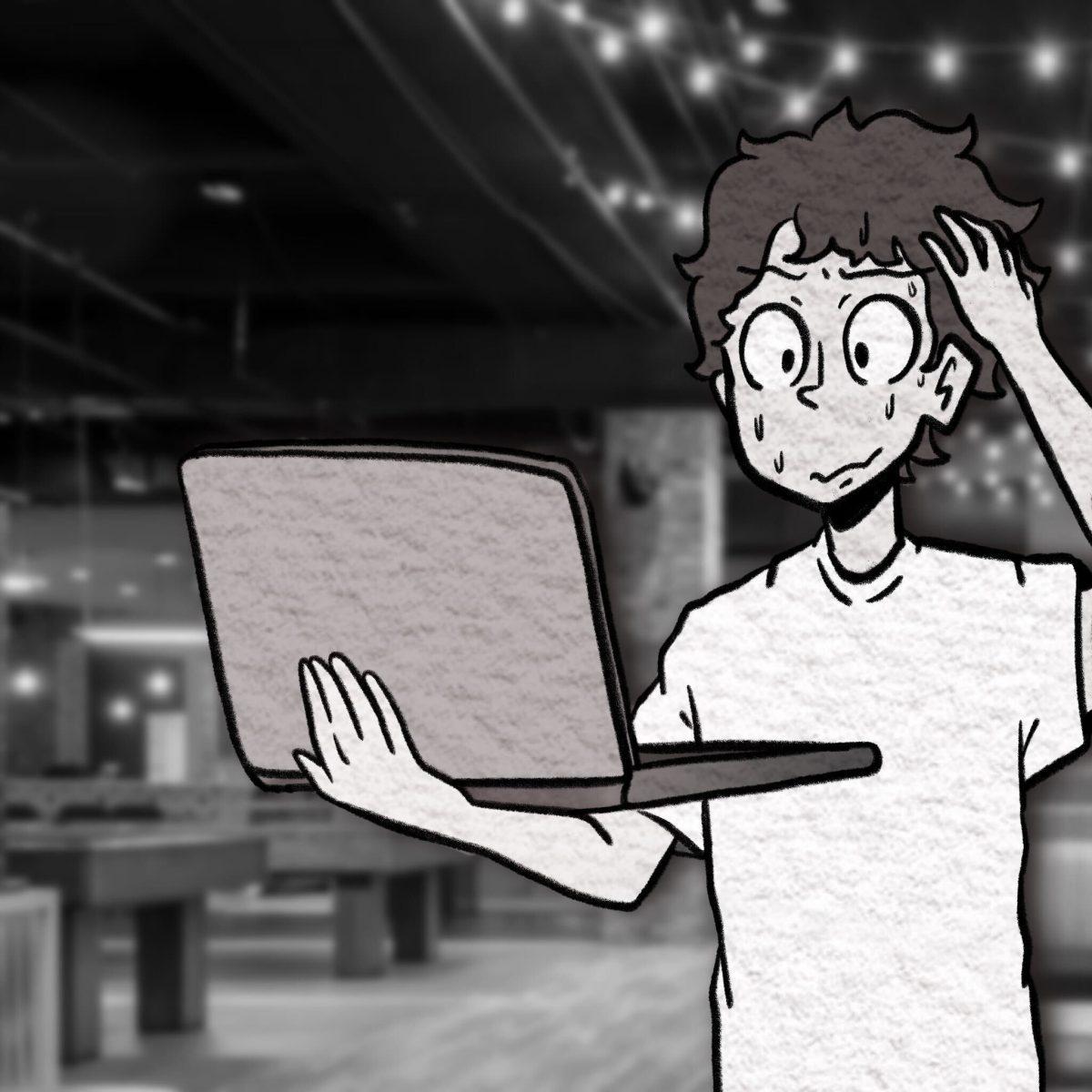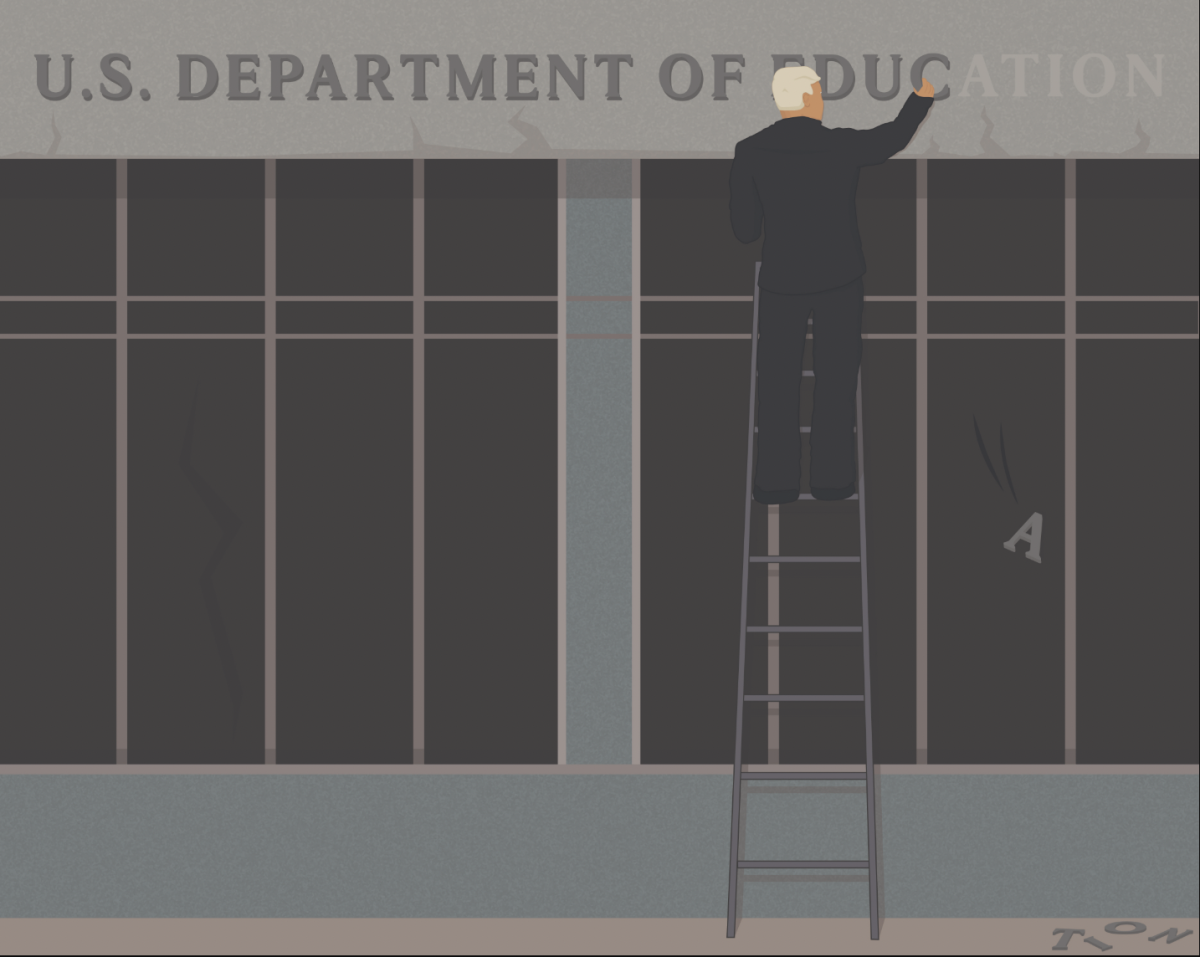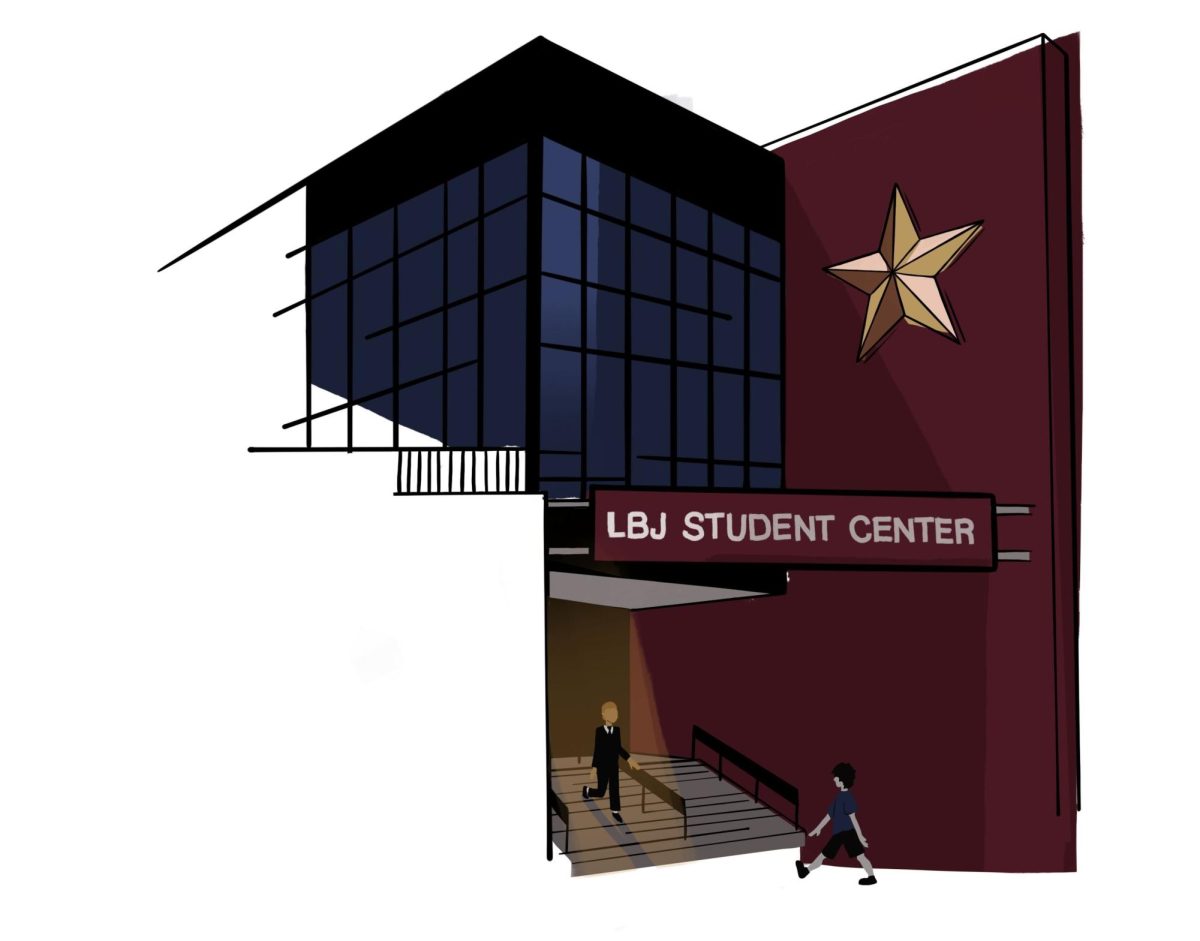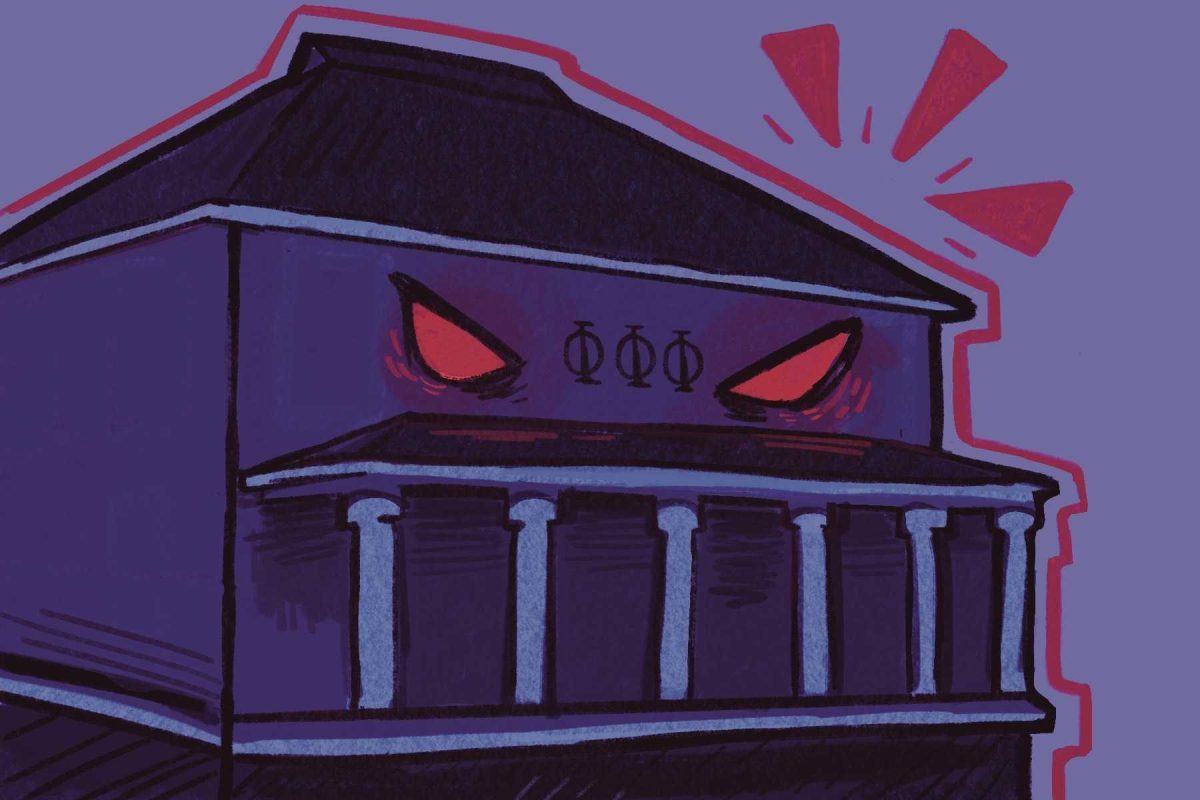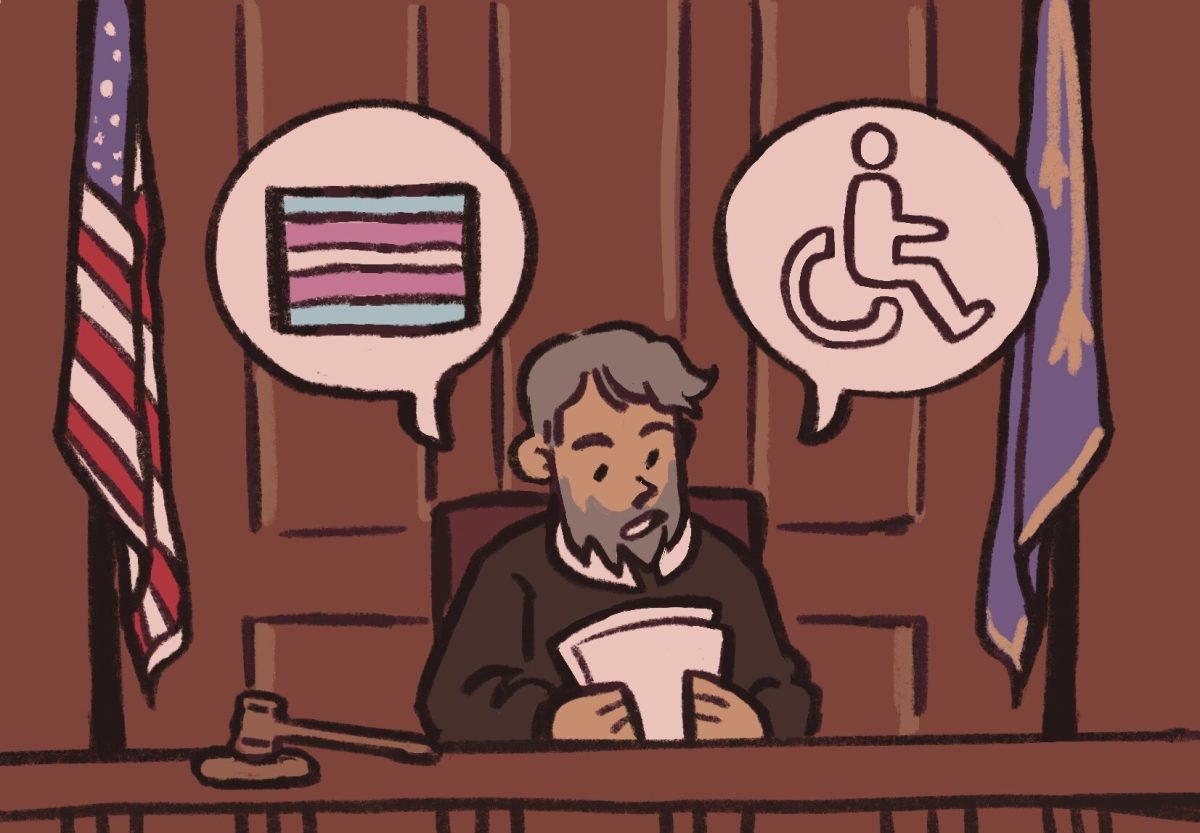This summer, a federal judge ruled in favor of a student who argued that the pre-test scan of a student’s room was illegal. Yet, at Texas State, this practice is still in use.
On Aug. 22, a ruling by U.S. District Judge J. Philip Calabrese set a new precedent regarding student privacy during online exams. The judge sided with Cleveland State University student Aaron Ogletree, who sued the institution for having to show his testing environment before taking an online exam.
When Ogletree had to show his room while taking a chemistry test, it raised red flags as a clear violation of the Fourth Amendment, which details the right to security. Online proctored tests requiring students to show their bedroom or testing environment is an evident invasion of privacy and needs removal as an option for professors at Texas State.
Online and hybrid courses at Texas State may require students to use the software programs Proctorio or Examity. These services not only require showing your testing environment but proving your identity by showing an I.D. and sharing screens while having audio and visual recording for the exam duration.
As students prepare to take an online exam, removing controversial posters or religious items, organizing their room and moving medical equipment should not be at the forefront of their minds; concentrating on the exam should.
According to Hope Walton, the University of Richmond’s director of the academic skills center, a students’ environment plays a vital role in academic success.
“Students spend an inordinate amount of time studying, interacting and sleeping in their dorms, so it is important to provide an environment that is conducive to these activities taking place,” Walton said in a press release. “I like to see rooms that have pictures and posters, which suggest students feel at home in their space, and a structure where everything is easily accessible to best suit students’ academic needs.”
A student’s comfort in their space can translate into their studies. For some, it may be posters. For others, it may be religious symbols.
Famous artists like Rihanna or Travis Scott, for example, whose brands sell items of them partaking in drug-related activities can be found in college students’ bedrooms. These activities are ones that students may not want their professors to know they condone. While adjusting to newly found freedom, however, it becomes essential for students to cultivate a safe haven in their room.
Texas State is a diverse university, and many religious beliefs circulate within the student body, including those who practice the Islamic faith. To those students, having Islamic rugs on display in their rooms reminds them of their values and a piece of home. However, some might feel uncomfortable sharing this sacred part of their lives with professors through online proctored testing.
For some students, especially those who live in close quarters with roommates or relatives, being required to share their living situation on screen is not ideal. Showing a room or living environment may cause embarrassment. Alkek Library only has a select number of study rooms available on a first-come, first-served basis, so a bedroom becomes the testing room.
According to a University of North Carolina study, roughly 4% of college students have sleep apnea. One of the ways to effectively treat this medical condition is to utilize a CPAP machine, which gives the patients continuous positive airway pressure, optimizing and preventing a lack of breathing.
Users of CPAP machines often keep the life-saving device near their bed with their masks for readily accessible treatment. As a sleep disorder with many stereotypes attached, college students with sleep apnea should not have to remove their medical equipment before taking an online exam. However, keeping the equipment in the visible area and having to broadcast it to systems like Proctorio and Examity breaches The Health Insurance Portability and Accountability Act of 1996 (HIPAA) laws.
HIPAA is a federal law that values privacy, security and breach notification. Unfortunately, students who use medical equipment like CPAP machines are losing their protection under HIPAA by showing the testing environment of one’s bedroom.
According to an article from The Associated Press, Ogletree’s lawyer, Matthew Besser, believes the Fourth Amendment applies to all, even in the college exam world.
“Freedom from government intrusion into our homes is the very core of what the Fourth Amendment protects,” Besser said. “If there is any place where students have a reasonable expectation of privacy, it’s in their homes.”
The U.S. Federal Government requires that all schools have a process for verifying student identity to protect against Federal Student Aid fraud. Some may argue that this is what these services do. According to ProctorEdu, 68% of surveyed students acted dishonestly during their studies. While online proctoring may catch these students, showing one’s living environment is a different sort of boundary that universities also crossed during COVID-19.
Texas State allows each professor to choose how academic integrity is measured. Professors may choose Proctorio and Examity, but its testing requirements are a clear violation of the Fourth Amendment. The goal of using lockdown extensions is to promote academic integrity. There must be better ways to still do this without violating one’s fundamental rights.
– Nichaela Shaheen is a mass communications junior
The University Star welcomes Letters to the Editor from its readers. All submissions are reviewed and considered by the Editor-in-Chief and Opinions Editor for publication. Not all letters are guaranteed for publication.
Opinion: Online proctored testing is a violation of privacy
Nichaela Shaheen, Opinions Contributor
October 20, 2022
0
Donate to The University Star
Your donation will support the student journalists of Texas State University. Your contribution will allow us to purchase equipment and cover our annual website hosting costs.
More to Discover



